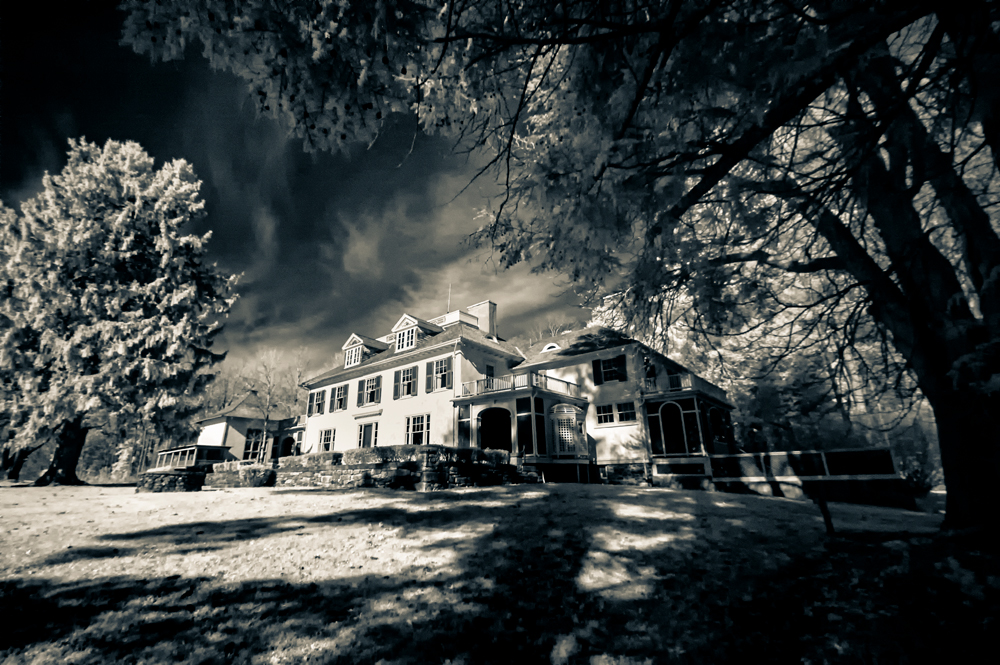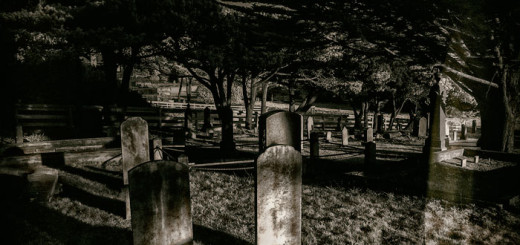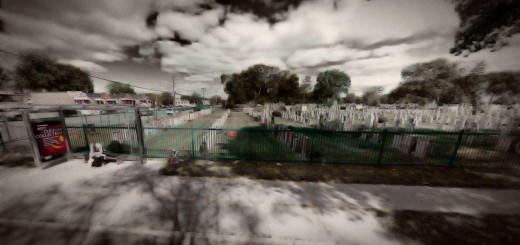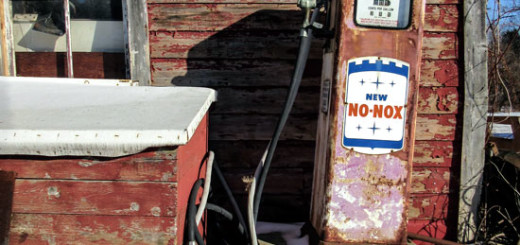The Shadows of Doubt
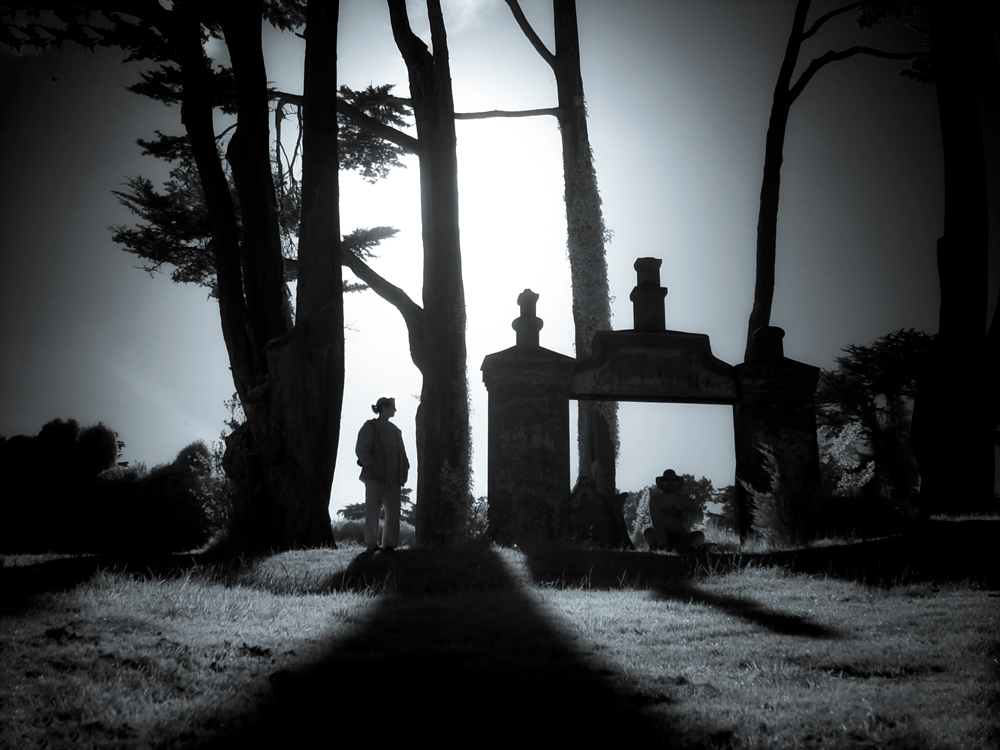 “We all have our ghosts,” a friend of mine is fond of saying. Perhaps he is more haunted than the rest of us, for he believes that ghosts are behind all human passion, animating those moments when an otherwise composed individual suddenly loses it. You fall in love, and that’s a ghost having its way with you. Rage? Just another ghost. Courage? Cowardice? Crankiness? All ghosts. Any behavior for which you are at a loss to explain yourself, when you shrug your shoulders and say “I don’t know what came over me”—that, my friend will tell you, is the work of ghosts.
“We all have our ghosts,” a friend of mine is fond of saying. Perhaps he is more haunted than the rest of us, for he believes that ghosts are behind all human passion, animating those moments when an otherwise composed individual suddenly loses it. You fall in love, and that’s a ghost having its way with you. Rage? Just another ghost. Courage? Cowardice? Crankiness? All ghosts. Any behavior for which you are at a loss to explain yourself, when you shrug your shoulders and say “I don’t know what came over me”—that, my friend will tell you, is the work of ghosts.
Skeptics dismiss any talk about ghosts and hauntings as the product of a disturbed mind, and there is some truth in this. I have to admit, even though I have had my own experience with ghosts, I sometimes worry about my friend. A pall of melancholy hangs over him, some relentless inversion in the weather of his soul. He talks about his ghosts not only at parties but around the office, so he struggles to keep an everyday job. His real work lies elsewhere. By avocation he’s a poet, but very few people know this; even fewer have read any of his verses. Perhaps when it comes to artists, a disturbed mind is a creative mind, a sensibility not content with the way things are. My friend may have a hard time holding down a job, but he is never at a loss for words, or company; after all, there is commerce between him and the ghosts.
Wasn’t it Socrates who said that poets are “not in their senses,” that they are possessed by a daimôn? Socrates, who was not known to hold a regular job, frequently consulted with his daimôn. He was as much a poet as he was a philosopher. The Greek word daimôn is usually translated as “guardian spirit” or “divine power,” sometimes “demon,” but “ghost” serves equally well for people like my friend and maybe even Socrates. These people are possessed. No wonder Plato’s imaginary Republic was not open to poets: they are the primordial troublemakers, the great unsettlers.
A ghost is popularly believed to be the disembodied spirit or soul of a dead person. It shuns the light and lurks in dimly lit places, so we call it a “shade.” In Homer’s Odyssey, the dead in Hades are depicted as “flittering shadows,” and in the Metamorphoses Ovid renders them as “bloodless umbrage wandering without body or bone.” Dante’s hell is packed with shades, and the dead hover as “empty images” for Aeneas on his visit to the underworld. The most poignant expression of this phantom reality is found in the Iliad, when the bereaved Achilles encounters the ghost of Patroclus. Achilles reaches out to embrace his beloved friend, but the ghost just dissolves into the ground with a thin cry. “Oh my!” laments the grief-stricken Achilles, “Even in the House of Hades something is left, a soul and an image, but no flesh and blood.” Just to assure you that more than a literary convention is at work here, consider that among California Indians, ghosts were said to take the form of human beings, but were ashen in color and shadowy in substance. And only recently, near where I live, there were reports of a young boy who complained to his mother about the “whispery people” who wouldn’t let him sleep at night. “What do you mean?” the concerned mother asked. “The shadows on the ceiling keep talking,” the boy explained. “They sound like flies. They want me to come with them.” The family quickly moved out of that house, but I fear we may have lost a budding poet.
Usually a ghost is shy, preferring to make appearance to one person at a time, or to a small, intimate group, often children or teenagers. Mostly, the living stand in passive relation to ghosts: the wraith happens to you, even though you might be minding your own business, as when, say, you’re peeling potatoes one evening by yourself in the kitchen, or you’re walking up the poorly lit stairway that leads to the apartment of your new lover. It comes unbidden, like a dream. Dreams, in fact, are the most likely place to encounter ghosts. Most of us have met them there, even if we can’t remember.
Every once in a while, there is a bold one among the living, who takes a more active stance toward the “other side” and seeks to invoke a ghost or two. For some time now, seances and ouija boards have been the divinatory methods of choice, especially among the young and the reckless, but such practices are not without risk. There is so little control, so little between ourselves and all hell breaking loose. Without discipline, ghosts will run amok. The problem for the spirit conjurer is identical to that of the poet: How to unite freedom with precision. Overheard in a coffee shop the other day, one young woman severely admonishing another about the dangers of amateur seances: “Just one wrong move, and Poof! Suddenly every dead rock star and TV evangelist is knocking at your door and forcing you to bake ten thousand apple pies. You can’t trust these ghosts. They have a mind of their own.” Another way of expressing it: start invoking them, and ghosts become like birds at a backyard feeder—once you put it out, you get endless flocks of regular visitors demanding to be fed. You better be prepared.
The psychologist Gustav Fechner, that great 19th century precursor of William James and Sigmund Freud, offered some very common-sensical advice: “The simplest way to guard oneself against the coming of ghosts is not to believe in their coming; for to believe that they come is to meet them halfway.” Poets, of course, are the great believers, and they are impetuous to boot; not only do they meet the ghosts halfway, they will go to extraordinary lengths to pay them visits in their dark home. Think of Orpheus singing his way into the frightening softness of the underworld to retrieve his beloved Eurydice, or Dante jostling through the hopeless shades to the very center of Hell. Not easy journeys.
The Buddha warned his disciples not to waste time speculating about the afterlife; that will take care of itself. Better to focus on your life here and now, and live it to the best of your abilities. From this perspective, ghosts are important not for what they tell us about our destiny on the other side, but for what they bring to light in this very moment. They may come just to roust us from our sleep. Ghosts carry with them treasure from the unfathomable depths. Hades, the god who rules this shadowy realm, was also known as Pluto, which—as you recall—means “wealth” or “riches.” Another of his epithets was “the nourishing one.” So you could say that to hear stories of ghosts provides some kind of psychological nourishment. Likewise, to tell such stories, again and again, is equally nourishing. There is no gap between great literature and everyday experience. The ghost story is a venerable genre, from Homer right down to last night’s campfire when, as the embers were burning low, somebody was heard to say, “Let’s have a ghost story.”
Let me tell you what happened to me once. It was very strange and occurred several years ago, when I was still living in Maine. I had graduated from college and was thoroughly lost as to what I should do with my life. I was depressed. One day I’m driving on this back road down toward Mount Desert Island to visit my friend Westphal. There are no houses along this road, only thick woods. At one point, I drive past a clearcut strewn with innumerable pale granite boulders, probably dropped there by the last glacier. They are shining in the late afternoon light and I think of tombstones. No sooner does this thought cross my mind when suddenly all these people stand up, one from behind each rock. How strange! What are they doing out here in the middle of nowhere? Then something even more strange happens. They all start rising up, floating into the air. They aren’t so much people as they are vaporish figures in the shape of people. I can see their faces. They’re laughing. They begin to run in the same direction I’m driving. They lope across the clearcut and into the standing woods. They float, they leap in long strides, they laugh the whole while. I’m terrified, but all I can think is, why are they laughing? And why are they following me? I grip the wheel and stare straight ahead at the road. Out of the corner of my eye I can see they’re keeping pace with me. Around the bend, an old cemetery comes into view. It really is a cemetery—there’s a wrought-iron fence around it. These running, laughing ghosts, or whatever they are, stop and gather in the cemetery, but I keep going. I turn my head for one last look, just in time to see them still laughing, sinking now into the ground, one behind each tombstone. The last figure, clearly a young woman and smiling, looks at me and waves.
I’ve thought about this doubtful episode repeatedly over the years. I remember at the time thinking: Is this really happening? I remember the long wisps of their bodies streaming like smoke as they ran. I remember the impish look on the face of that ghost-woman just before she dropped out of sight. I remember the goose bumps. And I remember how depressed I was. Sometimes I wonder: Did I make this whole thing up? Was I just going nuts? Then I tell the story again.
Lately I’ve been having doubts, so the other night I phoned back to Maine to talk to Westphal. Surely I must have said something to him at the time about the ghosts who cavorted alongside my car on that strange afternoon so many years ago. Surely he would remember, surely he could corroborate. I recounted the story to him. I asked: “Do you remember this?” There was a pause. “O’Grady,” he says at last, “that sounds like some story I’d tell my kids.”
Life is full of doubts, and nothing is more doubtful than ghosts. Nevertheless, in those uncanny moments, when the firm ground of your belief is suddenly jolted, when you have by an experience that shakes you right to the core, a door flies open and a mysterious figure stands there bidding you come in. Your choice: accept the invitation, walk forth, and perhaps go mad in the process; or you can turn tail, hurry away, and hope you can get back to that solid old familiarity, if it’s still there.
In ancient China there was a renowned artist, an old Taoist who painted nothing but ghosts. One day, when asked why he never painted anything else, such as a horse or a dog, he replied: “Everybody knows what those things look like. If I painted a horse or a dog, there would be no end to criticism then. Ah, but ghosts! Nobody knows what those look like. I paint ghosts and everybody says I’m a genius!” Genius, by the way, is another word used to translate daimôn.
The other evening, I overheard somebody say to my poet friend: “Tell us again about the ghosts, how they make us do the things we do in love.” What ghosts lurk in the dim recesses, bearing what gifts or terrors or both, will vary from person to person, and from age to age. Along the tenebrous fringe of our quick minds, the Muses themselves may be fluttering, or the dark Eurydice cowering, or the patient Virgil waiting to conduct the next errant poet on a hike into hell. Or perhaps the darkness is only thickened by the maundering shadows of dead rock stars and TV evangelists demanding our continued attention. Yet even they, I am sure, are enough to reanimate a world that has been stripped of soul.
My friend is right: we do all have our ghosts, for a ghost is none other than that mysterious urge that leads each of us down to the dark wells of creativity. Today, under the aegis of a no-nonsense rationalism, few encounter this urge in the form of ghosts. Only children and the truly possessed see these figures beckoning from the shadows. Yet somehow or another, in the wake of god or guardian angel, muse or lover, all creative individuals can still find their way to the source. The ghosts are there, invisible. Invoke them, and they will appear.
Appears in the collection Grave Goods: Essays of a Peculiar Nature (University of Utah Press, 2001) by John P. O’Grady
